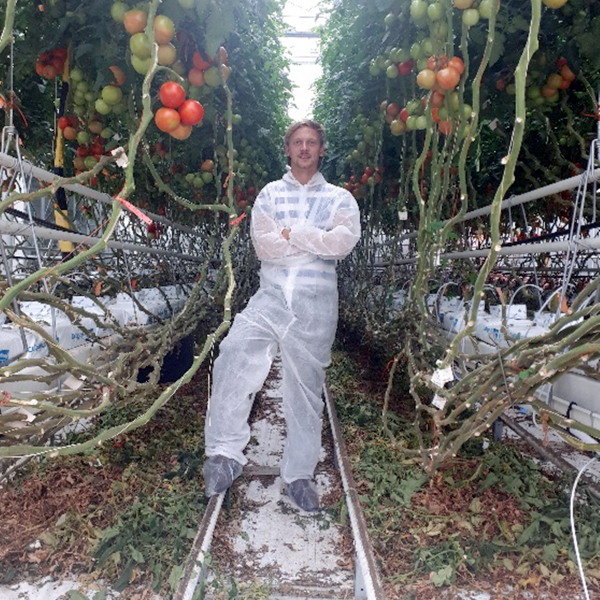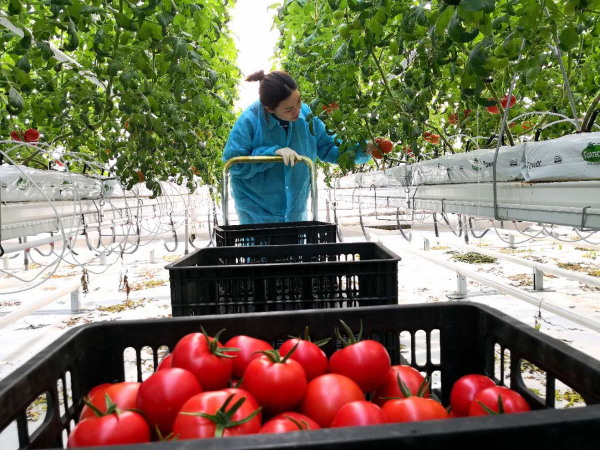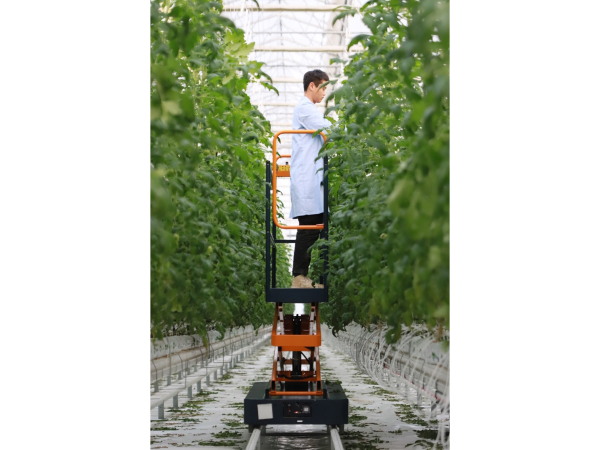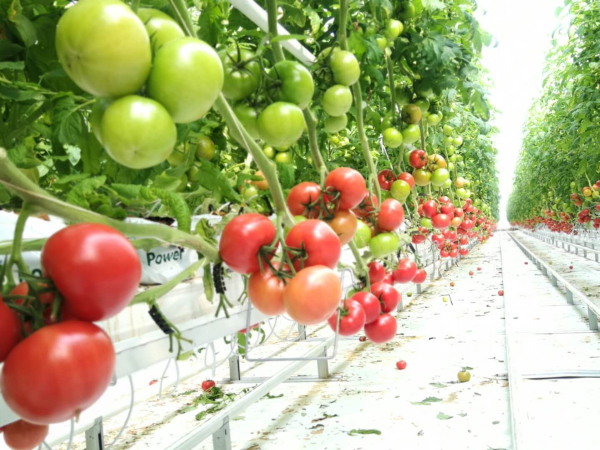Since the corona crisis has developed as a worldwide pandemic, travelling has become very difficult - whether it's national, international or intercontinental. Before February, travelling was as normal as going to the supermarket. However, at some point going to the supermarket wasn’t even normal anymore. But a crisis can also bring new opportunities. That's what Sven Paauwe of Delphy saw with the fast development and implementation of their autonomous greenhouse system including Delphy Dashboard.

All data in one place
Delphy Dashboard is a platform that controls autonomous cultivation through data-driven advice. "When it comes to the data-driven advice," Sven explains, "real-time data is collected through sensors. Combined with historic data, accurate advice can be given on a day-to-day basis, from hour to hour, or even every five minutes."
The Delphy Dashboard gathers all relevant data in one place. Data from sensors, climate computer and manual entries are stored in a handy overview. "With this data, you can make a dashboard with graphs, bar charts and other overviews. The data can be exported manually or through an automatic link (API)."

In addition, the platform enables communication with colleagues and customers about the data. "Growers can post messages next to a specific reading and time, upload photos and respond to comments from other users. All messages are shown in a feed, and the user gets a notification when they're mentioned in a post."
To determine the optimum greenhouse climate for every moment, based on different climate types, geographic location and type of crop, the Climate Profiler is used, which calculates the desired climate on a 5-minute level, by combining historic data, weather forecasts and current data. "Combined with QMS Tomato", Sven says, "in which the crop strategy is determined, and the climate controller, which calculates the set points for the climate computer, this is an important part of the autonomous management of a greenhouse company."

Developing the agriculture industry in China
Delphy has been active for a while now in China - the Dutch consultancy firm also has an office there. "Over the years, we've created good positioning and brand awareness," Sven notes. "And our Chinese colleagues, Eric, has good contacts with investors and companies."
What he likes most of working in China is the developments in the agricultural industry. Sven: "What may seem normal in the Netherlands, can be the crucial difference between a good harvest or disappointing results in China. It boils down to the organization, where big steps are being taken. I particularly enjoy the advancement and development of a company."

So how does this company development work when Delphy is involved? Sven explains: "When we start with a cultivation support project in China, our customer asks mainly for on-site support during the first period of a certain growing season. During this growing season, Delphy trains the local staff on-site in greenhouse management. This means training the local staff in greenhouse irrigation, climate, crop knowledge, IPM and some agricultural economics. When the corona pandemic hit, the autonomous greenhouse system saw faster development and implementation than expected, because it was the best alternative to monitor the activities with real-life data."

Dealing with climate extremes
Delphy participated in the Autonomous Greenhouse Challenge, organized by Wageningen University and Research, for two years in a row. Out of this challenge, they gained data, experience and knowhow. "After these two challenges, we are confident enough to implement this in China together with one of our clients", Sven says.

"Our client is a progressive and motivated investor/grower who's looking to expand from 2.5 hectares to 60 hectares in the coming five years. At the moment, our client builds an extra 7 hectares, which means he expands this year from 2.5 to 9.5 hectares. However, when expending so rapidly in combination with a lack of greenhouse management staff and 'green thumb' knowledge, our autonomous greenhouse system is a very good solution."

Delphy monitors the greenhouse and stays in close contact, but the autonomous system will set the climate and irrigation by itself based on realized data and weather forecasts. "Every day is different, but the system is continuously looking for the optimal conditions for the tomato plant. Especially in climates as where this greenhouse operates, creating the correct climate is very important because in the winter it will be -30 degrees Celsius and, in the summer, there are peaks of 37 degrees. Furthermore, a daily greenhouse management report will be summarized to learn and discuss from certain situations. As mentioned, the corona crisis doesn’t only have a negative impact around the world. I've seen that the digital development came into a rapid development and implementation because of it."
For more information: Delphy
Delphy
Sven Paauwe
S.Paauwe@delphy.nl
delphy.nl
